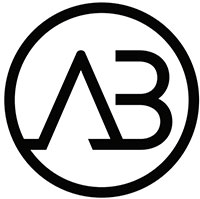
Asking good coaching questions is at the heart of effective coaching regardless of coaching model. It does not matter what type of coaching approach you trained in, all approaches use questions to uncover individual thought processes. Coaching questions aim to uncover, explore, reflect upon and challenge your client’s thought processes.
Coaching questions tend to fall into five categories. You may find it helpful to work through each category writing down as many questions as you can think of that would fit. Thinking about current clients will help you focus on the types of questions that would be most useful and you can then try these out in your next session.
1. Questions aimed at Clarification: These types of questions are aimed at getting behind the concepts that underpin your client’s thought processes. For example, “What does that mean to you?”, “How does what you’ve said relate to your current situation?” or “What types of situations challenge you?” These questions are more akin to asking basic open questions aimed at eliciting information. However, apart from information gathering they give you the opportunity to gain an understanding of your client’s thinking style.
2. Questions aimed at uncovering assumptions: Most people make assumptions about themselves, others and the world in general without ever realizing they do this or questioning these. Asking probing questions helps the client uncover the assumptions s/he is making and provides an opportunity to question the validity of such assumptions. For example, “How do you know your boss does not like you?”, “What are your colleagues doing that makes you think you are not doing a good job?”, or “What would happen if you did say no?”
3. Questions that look for evidence: Following on from the concept that all human beings make assumptions, the next stage is to help the client consider what evidence s/he uses that underpins their reasoning. Individuals often think they have sound evidence for a course of action or a belief when, in-fact, their thoughts are not well informed at all. For example, “What evidence are you basing your thoughts on?”, “What examples are you using to back-up your thinking?”, or “How do you know that to be true?”
4. Questions that challenge the client’s views: These types of questions are aimed at helping clients consider alternative positions as a way of reframing thoughts while also helping the client develop a better internal mechanism on which to base future thinking. For example, “What other factors could have contributed to this situation?”, “What makes it essential to act now?”, “If you consider how you are dealing with the situation compared to your colleague who you said was dealing with it more effectively, what would you say is the difference?”
5. Questions that evaluate consequences and implications: This type of question considers the potential outcomes and associated implications of a course of action. The client can then consider whether these make sense and are desirable as potential outcomes. For example, “What would happen then?”, “Why is X important?” or “If you followed that line of thinking through where would you end up?”
It takes time to develop the art of asking questions, so don’t be too hard on yourself. If you start thinking about the meaning and purpose of the questions you are asking and link these to the outcomes your client is seeking to achieve, you will soon find that you develop the ability to ask the right types of questions
Written by Gladeana
